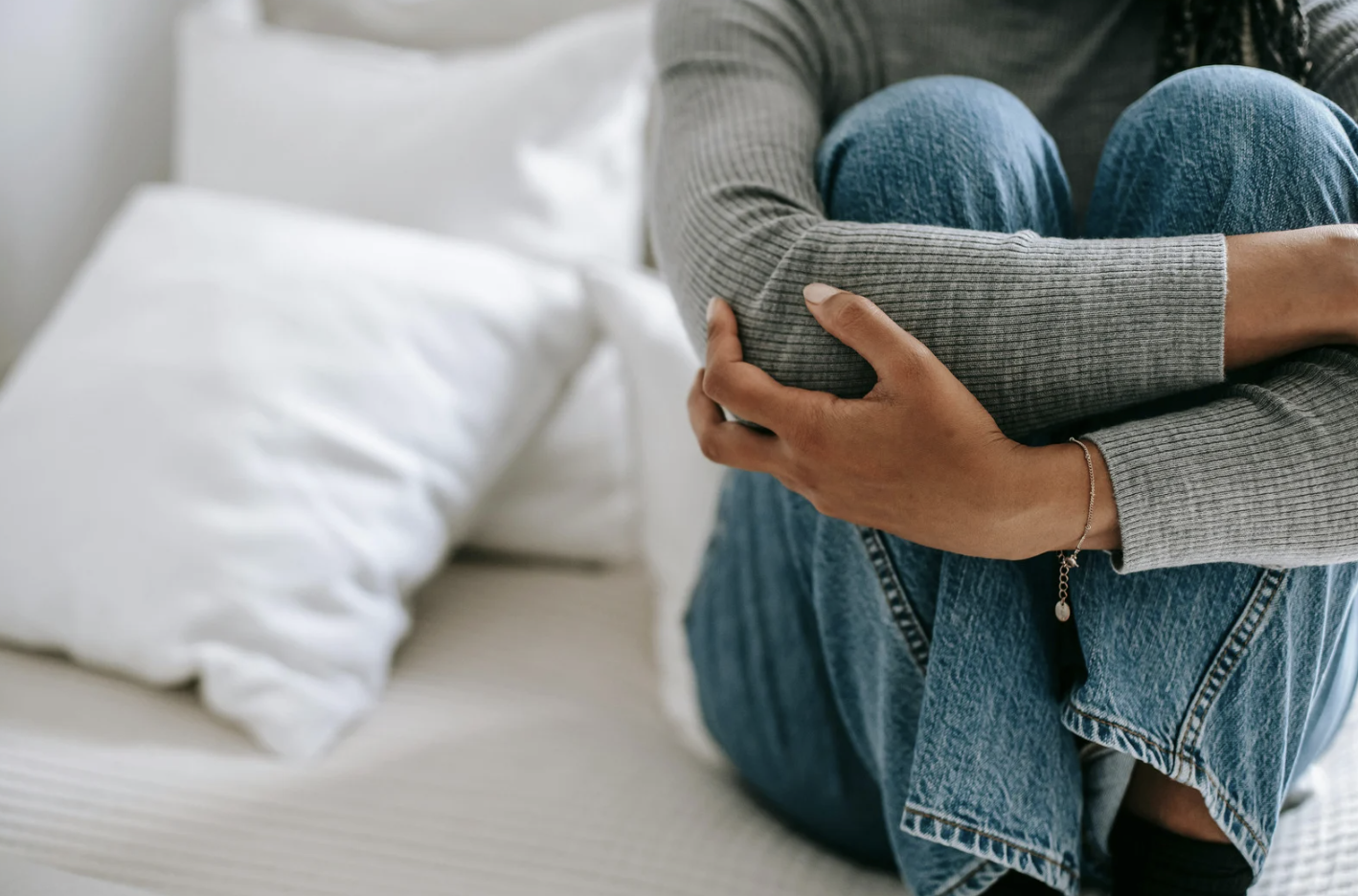Most of us experience times in life when we feel low, unmotivated, or overwhelmed. These ups and downs are a natural part of being human. But when those feelings linger for weeks or begin to interfere with day-to-day life, it might be something more serious – like depression.
Depression is a common and often misunderstood mental health condition. It can affect anyone – regardless of age, gender, or background – and it doesn’t always look like sadness. In fact, many people with depression appear to be functioning well on the surface, making it easy to miss the signs in ourselves or others.
In this post, we’ll explore what depression is, how to recognise the warning signs in yourself or someone close to you, and what steps you can take to seek support.
What Is Depression?
Depression is more than just feeling sad or going through a rough patch. It’s a mood disorder that affects how you think, feel, and function. It can impact your sleep, appetite, energy levels, concentration, and relationships.
According to the Australian Bureau of Statistics, one in seven Australians will experience depression at some point in their lives. Despite being common, depression is still surrounded by stigma and misunderstanding, which can prevent people from seeking the help they need.
There are different types of depression, including:
- Major depressive disorder
- Persistent depressive disorder (dysthymia)
- Bipolar disorder
- Perinatal depression
- Seasonal affective disorder (SAD)
This blog focuses on the most common symptoms of major depressive disorder, though many of these signs can also apply to other forms.
Common Signs of Depression
Depression can present differently from person to person, but here are some of the most common psychological, emotional, behavioural, and physical signs.
1. Persistent Low Mood or Sadness:
One of the hallmark symptoms of depression is a low or flat mood that lasts for most of the day, nearly every day, for two weeks or more. This feeling might be described as emptiness, hopelessness, or numbness, rather than sadness.
2. Loss of Interest or Pleasure in Activities:
Also known as anhedonia, this symptom refers to losing interest in things you used to enjoy – like hobbies, exercise, socialising, or even sex. It’s a sign that the brain’s reward system isn’t functioning as it normally would.
3. Fatigue or Low Energy:
People with depression often feel drained or exhausted, even after a full night’s sleep. Everyday tasks can feel overwhelming, and getting through the day may require enormous effort.
4. Changes in Sleep:
Depression can disrupt your sleep in different ways. You might find yourself struggling with insomnia – lying awake at night, waking early – or sleeping too much and still feeling tired.
5. Changes in Appetite or Weight:
Some people experience a significant loss of appetite and weight loss. Others may eat more than usual, especially comfort foods, leading to weight gain. These changes are typically noticeable and may affect health over time.
6. Difficulty Concentrating or Making Decisions:
Depression can cloud your thinking. You may find it hard to focus, forget things easily, or struggle with decision-making, even around simple daily tasks.
7. Feelings of Worthlessness or Excessive Guilt:
People with depression often experience harsh self-criticism, guilt over minor issues, or a belief that they’re a burden to others. These feelings can be deeply painful and contribute to a sense of hopelessness.
8. Irritability or Anger:
Depression doesn’t always show up as sadness. For some, especially men, it can present as increased irritability, frustration, or anger, often over small things.
9. Withdrawing from Others:
If someone close to you is suddenly cancelling plans, becoming hard to reach, or isolating themselves, it may be a sign they’re struggling with depression. Withdrawal can be a way to protect oneself when everything feels overwhelming.
10. Physical Aches and Pains:
Depression doesn’t just affect the mind – it can manifest in the body too. Headaches, stomach problems, muscle pain, or a general sense of physical discomfort can be signs, especially when no clear physical cause is found.
How to Spot the Signs in a Loved One
It can be difficult to notice depression in someone else – especially if they’re masking their pain. Here are a few behavioural signs to look out for:
- They seem “not like themselves” lately – more tired, flat, or withdrawn.
- They’ve stopped doing things they once loved.
- Their sleep or appetite has noticeably changed.
- They’re making negative comments about themselves.
- They’re using more alcohol or substances than usual.
- They seem overwhelmed by everyday responsibilities.
- They’ve pulled away from social interactions or support.
Don’t assume that someone is okay just because they’re getting on with life. High-functioning depression is real. People can be holding down a job, taking care of others, and still be deeply unwell.
Depression Can Look Different in Everyone
Depression isn’t one-size-fits-all. Some people cry frequently, while others feel emotionally numb. Some overeat, others lose their appetite. Culture, gender, personality, and age all play a role in how depression presents.
For example:
- In adolescents, depression may show up as irritability, school refusal, or risk-taking behaviour.
- In men, it’s often masked by anger, substance use, or withdrawal.
- In new mothers, depression can look like guilt, hopelessness, or disconnection from their baby.
- In older adults, it may present as memory problems, sleep disturbance, or unexplained physical complaints.
It’s important to stay open-minded about what depression “should” look like.
When to Seek Help
If you or someone you care about has been experiencing several of the symptoms listed above for more than two weeks, and they’re affecting daily life, it’s time to seek support.
You don’t need to wait until things feel unbearable. The earlier you seek help, the sooner you can begin to feel better.
Signs that indicate urgent support may be needed include:
- Thoughts of death or suicide
- Self-harming behaviours
- Complete withdrawal from social or work life
- Severe changes in functioning or hygiene
- Substance use to cope with emotions
If you’re concerned about safety, speak with a GP, contact a crisis line (like Lifeline on 13 11 14), or seek emergency assistance.
How a Clinical Psychologist Can Help
At MyLife Psychologists, we understand that depression can feel overwhelming and isolating. Our clinical psychologists in Sydney work with clients to:
- Understand the root causes of their depression
- Develop personalised treatment plans
- Learn practical coping strategies
- Reconnect with values, goals, and relationships
- Explore unhelpful patterns of thinking and behaviour
We draw on evidence-based therapies such as Cognitive Behaviour Therapy (CBT), Acceptance and Commitment Therapy (ACT), Schema Therapy, and Psychodynamic Therapy to tailor treatment to your unique needs.
You don’t need to go through this alone. Depression is highly treatable, and many people recover with the right support.
How to Support a Loved One with Depression
Supporting someone with depression can be challenging, especially if they’re not ready to talk. Here are some tips:
- Let them know you care. A simple “I’ve noticed you’re going through a hard time – do you want to talk?” can open the door.
- Listen without judgment. Avoid trying to fix it or offer quick solutions.
- Encourage professional help. Offer to help them book a GP or psychology appointment.
- Stay connected. Even if they’re not responsive, your consistent presence matters.
- Take care of yourself too. Supporting someone with depression can be draining – make sure you’re getting the support you need as well.
Final Thoughts
Depression is a serious but treatable condition. Learning to recognise the signs – whether in yourself or someone close to you – is the first step towards healing.
If you’re reading this and wondering whether what you’re experiencing could be depression, we encourage you to reach out. It takes courage to seek support, and help is available.
At MyLife Psychologists, our warm and experienced team is here to walk alongside you. Whether you’re struggling with low mood, burnout, or you’re worried about a loved one, we’re here to listen and help.
Contact us today to find the best match from our team of highly qualified psychologists in Sydney.
References and Resources
-
Australian Bureau of Statistics. (2022). National Study of Mental Health and Wellbeing.
-
Beyond Blue. (2024). The Facts – Depression.
-
Black Dog Institute. (2024). Depression Resources.
-
Beyond Blue. (2024). Support Someone You Care About.








